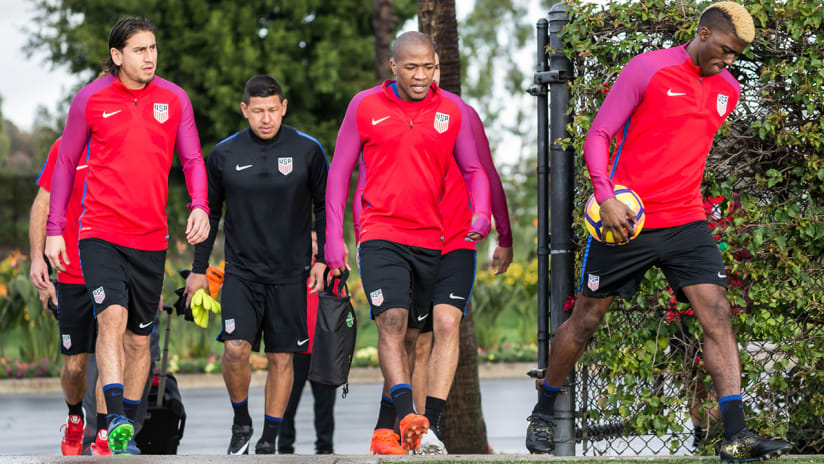CARSON, Calif. – FIFA's decision to expand the World Cup from 32 to 48 teams for the 2026 edition has been met with skepticism among many, and members of the US national team have some doubts, too.
“I think that's a little strange that they did that. I think it dilutes the product a little bit, no?” midfielder Alejandro Bedoya told MLSsoccer.com during the USMNT's January camp at StubHub Center.
“But I mean it is the World Cup, it is the biggest sporting event in the world and I don't think that's going to change the viewership. If you want to be real, it comes down to money, right? At the end of the day, more countries involved, more countries in, I think it helps FIFA with the revenue there.”
The bigger tournament is advertised as a more inclusive one, and is projected to reap a hefty financial windfall.
“Maybe for those other smaller countries that maybe didn't really have chances of going to the World Cup and they finally are in a World Cup, I think those people are really excited about this,” Bedoya added. “It maybe dilutes the competition … Even with the Euros expanding [in 2016], you could see a little bit [of that] in some of the games. But then you see teams like Iceland, teams like that that have these Cinderella stories in there, things like that.”
It also stands to transform the qualification experience for the United States.
Though they currently sit in an 0-2 hole in the 2018 edition of the Hexagonal, the final round of CONCACAF's qualifying, the US have made World Cup appearances a habit over the past quarter-century. After missing out for decades up until 1990, the Yanks have learned to navigate their region's pitfalls, building a streak of six consecutive successful qualification campaigns. Those who've experienced the rewards of that long, winding road to the big dance don't wish to see it cheapened.

“I like the way it is now with fighting for that position, earning your spot at the World Cup, earning your spot in the qualifications,” US goalkeeper Nick Rimando said. “When you make it, you feel like you did something, you didn't just take the easy route in.”
FIFA has yet to decide how World Cup berths will be distributed among its six member confederations under the expanded format. But several reports have suggested that CONCACAF and CONMEBOL, the South American confederation, could merge their qualifying processes for the 2026 tournament, which would see all of the Americas battling for as many as 14 spots in the big event.
That ambitious idea would match up the US against daunting, far-flung opposition like Brazil and Argentina in addition to their usual regional rivals, adding new challenges and destinations to a process that might otherwise become a formality.
“That would be something else – that would be pretty cool,” said Bedoya, a South Florida native of Colombian descent who joined the Philadelphia Union last summer. “CONMEBOL, for me, is the toughest federation to qualify through. For us I think it would be pretty cool to travel to Colombia or Argentina and see what the real culture is like there, and play in front of those atmospheres. Because I can tell you just from watching on TV and growing up watching the Argentinian league, the atmosphere there is incredible.”
Added Rimando: “Those teams have proven themselves over the years and combining CONCACAF's with theirs would definitely be a tough road. But again, it's something that I don't put past us, because we have the players, I think, in the States to become a really good team … If that time comes, we'll give it everything we have.”
Meanwhile, coach Bruce Arena – who was hired in place of Jurgen Klinsmann for the specific purpose of salvaging the campaign for Russia 2018 – offered an acerbic reality check when asked about the topic.
“No, that's 2026, I'll be watching that in my rocking chair,” cracked the 65-year-old. “So I'm not real worried about that at this point.”














